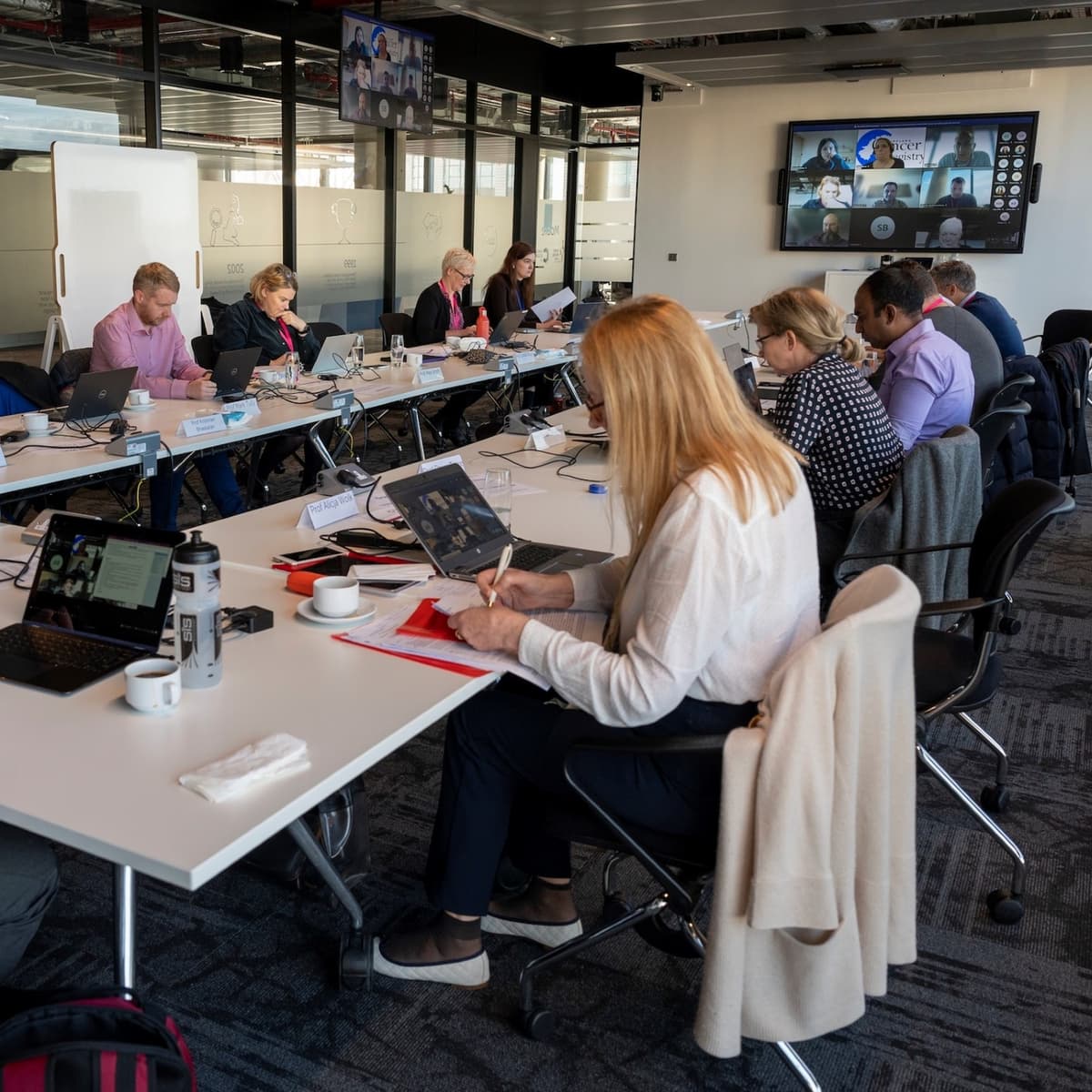Our Clinical Research Committee (CRC) maintains a broad portfolio to maximise patient impact, supporting research across various treatment types, disease areas and cancer stages.
We’re particularly interested in proposals addressing areas of strategic priority for us including research into cancers that affect children and young people, rare cancers or cancers of unmet need such as brain, lung, oesophageal, pancreatic, liver and stomach cancer.
Our clinical research statement of intent provides an overview of how we implement our research strategy and guidance to researchers on what kind of research we want to fund. It also helps to guide the strategic funding decisions made by the CRC.
Read our research strategyRead our clinical research statement of intentOur modular scheme supports high-quality, biologically rich trials and studies using innovative and adaptive designs that seek to maximise what we can learn from every participant. We encourage bold and creative applications.
The CRC and its expert review panel meet twice a year to review all applications. They assess applications based on:
importance and rationale of the research questions – both clinical and scientific
alignment with our research strategy and clinical research statement of intent
expected impact, or potential future impact, on clinical practice and patient outcome
strength of study design, including statistical design, rationale and the appropriate integration of modules
adequacy of background information and supporting evidence
expected interest in patients and adequacy of the recruitment plan and supporting evidence, where appropriate
expertise of the study team, including meaningful involvement of early career researchers
likelihood of successful delivery
where possible, recruitment is representative of the target patient population
study is designed, and will be delivered, with diversity and inclusion in mind in order to identify and reduce barriers for underserved populations to access research
appropriate and meaningful patient involvement in the development, delivery, governance and dissemination of the study
suitable justification of costs, including the appropriate phasing of costings in line with expected milestones
Proposals including sample collection and/or data analysis must also demonstrate:
strength of the research hypotheses
uniqueness of the opportunity to collect samples and/or data
potential future value of the proposed samples and/or data
appropriateness of techniques and procedures, including statistical aspects where applicable
transparency of arrangements for sample discoverability and access for other research groups, including alignment with the FAIR principles
The committee will use the following additional criteria to guide their review of proposals involving biomarkers:
a clear scientific and clinical need for the biomarker
robust preliminary data to support the hypothesis
access to appropriate clinical samples
robustness of the assay
suitable number and quality of samples
link to a clinical trial (either prospectively or retrospectively)
‘line of sight’ to the clinic
appropriately powered study to ensure results
detailed description of the statistical analysis plan
appropriate biomarker statistician / expertise named on the application
appropriate multi-disciplinary expertise in the proposed research team to undertake the project
The terms of reference for this committee provide guidance for how they should assess all applications.
Read the committee's terms of reference(PDF, 691 KB)
Studies funded by this committee are monitored through the Clinical Research Monitoring Panel (CRMP). This ensures the studies are progressing as planned. The panel meets three times per year to review annual Scientific Milestone Reports and determine whether to continue support.
Read the CRMP terms of reference (PDF, 219 KB)
Professor Andrew Tutt - The Institute of Cancer Research
Professor Frances Balkwill - Queen Mary, University of London
Dr Bristi Basu - The University of Cambridge (also chair of the Clinical Expert Review Panel)
Dr Raza Ali – University of Cambridge
Professor Gerhardt Attard - University College London
Professor Sarah Brown - The University of Leeds
Professor Steve Clifford – Newcastle University
Professor Andy Davies - The University of Southampton
Professor Awen Gallimore – Cardiff University
Professor Charlie Gourley - The University of Edinburgh
Professor Alastair Greystoke - Newcastle University
Chris Hurt – University of Southampton
Professor Mariam Jamal-Hanjani - University College London
Professor Robert Jones – University of Liverpool
Professor Simon Leedham - The University of Oxford
Professor Paul Lorigan - The University of Manchester
Professor James O'Connor - The Institute of Cancer Research/University of Manchester
Dr Stefan Michiels - Gustave Roussy
Dr Jessica Okosun - Queen Mary, University of London/Barts Cancer Institute
Professor Roberto Salgado - TCRU GZA Antwerp
Dr Gudrun Schleiermacher - Institute Curie
Sarah Pearson - University of Oxford
Dr John Moppett - University Hospitals Bristol
Professor John Chester - Alder Hey Children’s Hospital
Dr Graham Collins - University of Oxford
Dr Vicky Coyle - Queen's University Belfast
Professor Richard Emsley – King's College London
Andrea Harkin - University of Glasgow
Professor Ann Henry - University of Leeds
Professor Richard Wilson - University of Glasgow
The Clinical Expert Review Panel is chaired by members of the CRC. The membership of the Clinical Expert Review Panel is predominantly ad-hoc with the addition of standing panel members.
Dr Bristi Basu – University of Cambridge
Professor Andy Davies - University of Southampton
Professor Alastair Greystoke - Newcastle University
Dr Kim Linton - University of Manchester
Professor Anthony Moorman - Newcastle University
Professor Manuel Salto-Tellez - Queen's University Belfast
Our patient and public involvement representatives support the committee and associated panels as full voting members.
Andy Bojke
Debbie Keatley
Faaria Mohammed
Ike Junior
Janette Rawlinson
Jeremy Dearling
John Reeve
Julie Wolfarth
Maisie McKenzie
Richard Stephens
Sonia Patton

Early- to mid-career researchers can apply for the opportunity to observe our panel and committee meetings across our funding remit.

Each year we fund a wide range of new research through our response-mode funding schemes. Find out who has been recently funded and learn more about their research projects.

We support a diverse pipeline of clinical and translation research and the clinical scientists committed to finding better ways to prevent, detect and treat cancer.